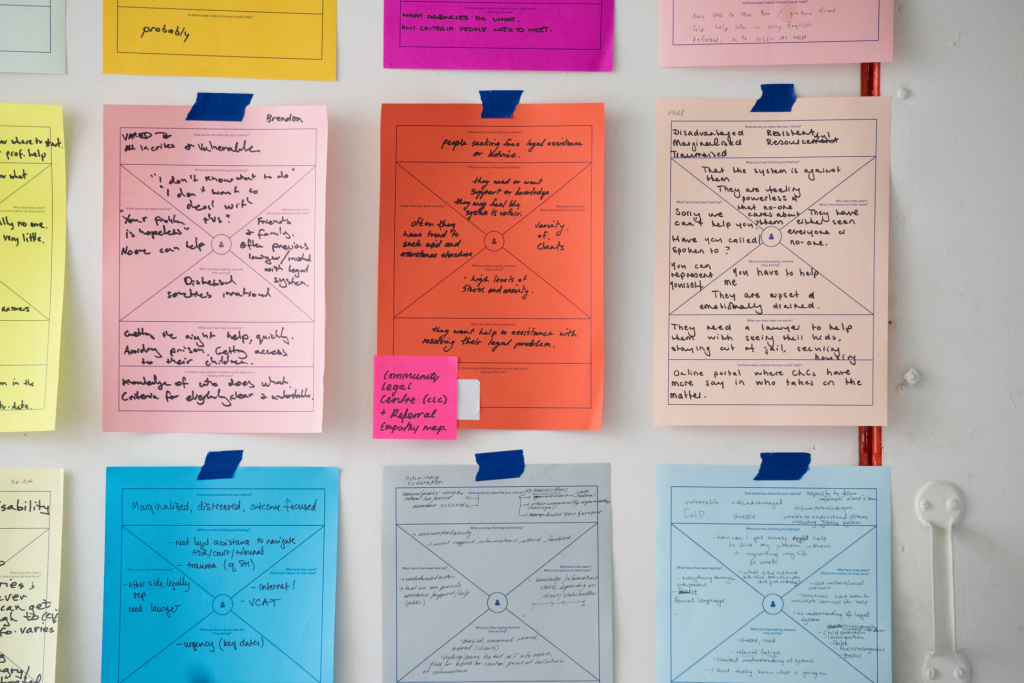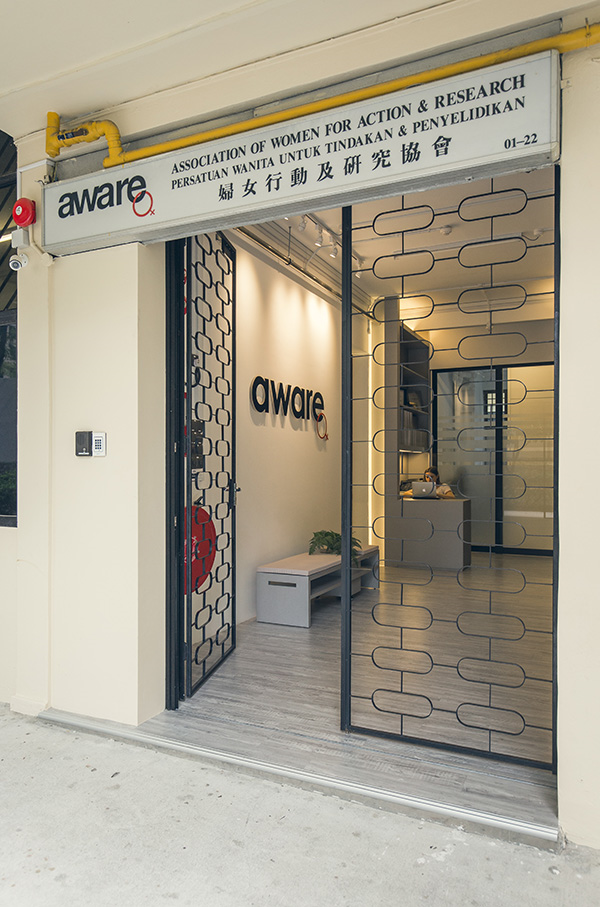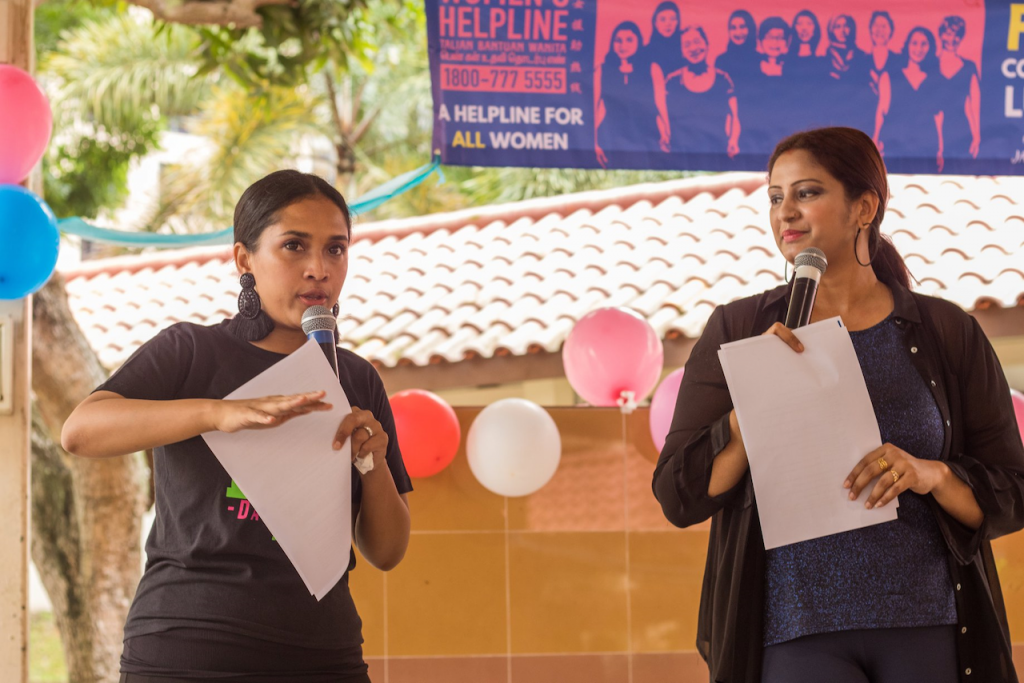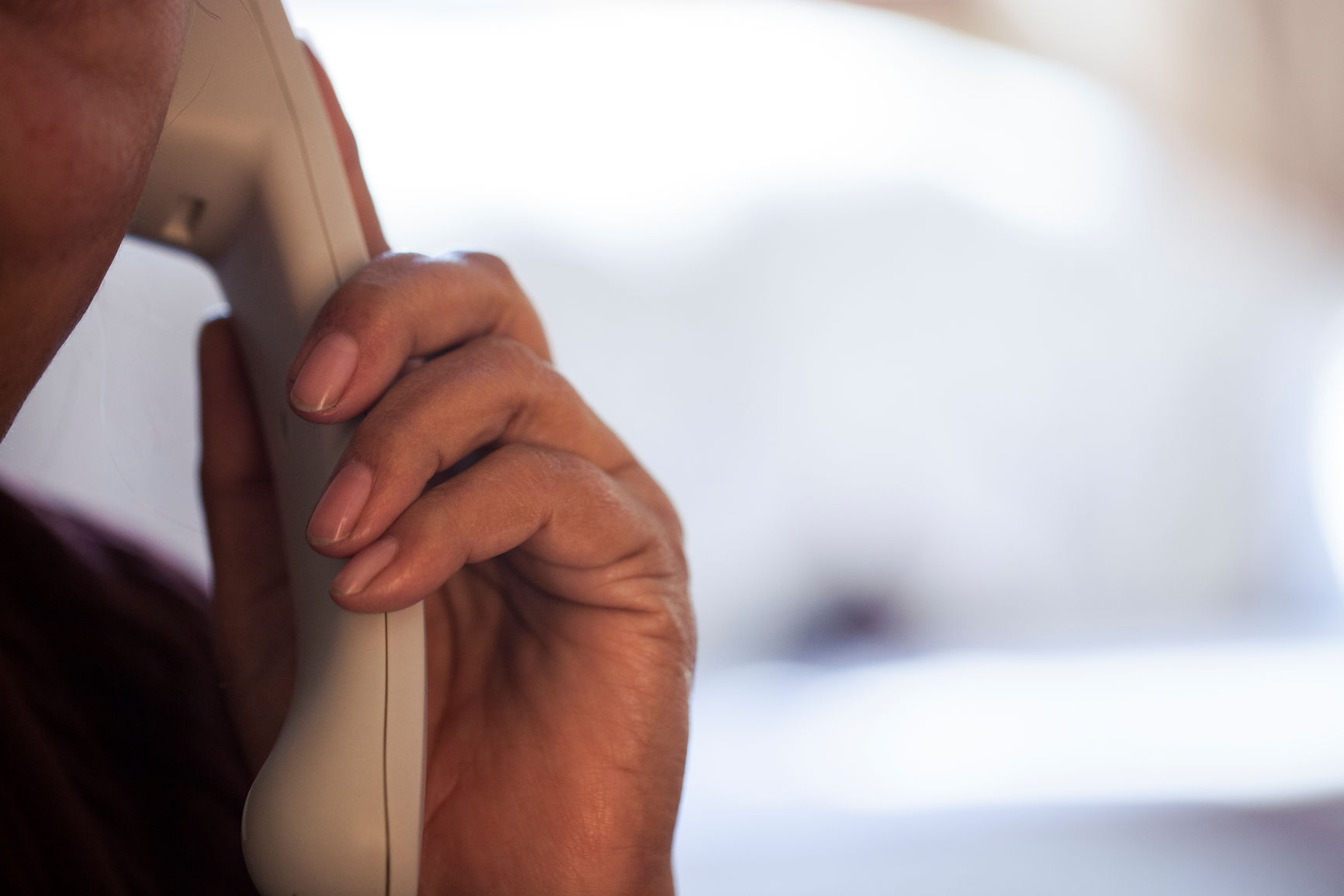There is a place for concrete solutions, but something we don’t think about as often is our most immediate response: the act, and art, of listening.
How do we address a situation without forgetting the person at the heart of the issue? How can we be there for someone without treating their problem as ours to solve?
Anita* volunteers with AWARE’s Women’s Helpline, where she fields calls from women across the social spectrum, offering them support and information over the phone. She spoke with us about the delicate, infinitely complex practice of empathy. This piece is based on her account of her experiences, as told to us, with editing for clarity and expression.
When I enter the ground-floor room—small, simply furnished—it’s always on a full stomach. I brew a cup of coffee and ensure there’s a bottle of water to hand; maybe take out a packet of biscuits. I turn on the handset, set my phone to silent mode, and open up a series of tabs on the laptop: AWARE’s website, the Community Justice Courts, Legal Aid, the Protection from Harassment Act.
The noticeboard in the corner is always filled with messages, so I scan those to see if there’s anything new. I set pen and paper on the table and make sure the SOP file is within reach. In my head, I recite the lines like a mantra—familiar by now, but I have to make sure their meaning never dulls: It’s her life. It’s her choice. I’m here to support her, not to judge.
Then I take my seat, take a breath, and wait for the phone to ring.

We get calls from women of all ages and backgrounds, wanting to speak about all sorts of issues. The most common are relationship violence, marital issues, and psychological distress, but it can really be about anything. I’ve heard about workplace harassment and childhood sexual abuse; spoken with boyfriends calling about their girlfriends, and once took a call from 3 family members all having a meltdown simultaneously. For anywhere from 20 minutes to the better part of an hour, I’m there to listen to anything a caller wants to tell me.
My first few shifts were nerve-wracking. Although I’d dabbled with various kinds of volunteer roles—fundraising, teaching—I’d never done first response work before. I had about six months of training, including practice sessions observing senior volunteers (and having them observe me), but nothing truly prepares you for the first time you pick up the phone, and it’s just you and them.
In one of my earliest calls, an incident of domestic violence was going on right as we spoke. The caller had locked herself in her room with her 3-year-old child; I could hear her husband in the background, pounding on the door and shouting. She didn’t want me to call the police, which I had to respect, but I was genuinely fearful for her safety. When she hung up, I couldn’t help thinking: will she call back?
Not every call is this serious, but my early shifts were largely marked by nerves, anxiety, and self-doubt. Does the caller like me? Am I making her feel comfortable? Do I make her feel like she can open up some more?
There is no cheat sheet to this process. There are no magic words you can say to make someone trust you, or ease their pain and fear; to light a path through a thicket of issues or discern what a caller wants from you. In fact, they aren’t always sure of this themselves.
Some are very upfront—they’ll say straight up, “I want to know about legal aid,” or “I don’t want advice, I just want someone to listen”. Others, however, might not have decided what to do; they might be crying and unable to think clearly. The trick, and the difficulty, is in making sure they feel supported without making that decision for them.
I never push a particular solution. I’m not here to sell callers anything. What I try to do is empathise in a non-judgmental way, and provide callers with information and resources if they want those.
Walking that line isn’t always easy, particularly when I’m asked directly for my opinion. If a caller flat-out asks, “What do you think I should do?”, this usually means that they’re looking for validation, and you have to try to find a way to give them that without explicitly—or implicitly—telling them what to do. Or, for that matter, telling them what you would do.

The thing is, the starting point of empathy is that it’s not about you.
The impulse to use yourself as a reference point is human, and understandable. I’ve been through something similar, I can relate. I know how you feel. We’ve all said this at some point in time or another, and meant it with good intentions.
But one of the things emphasised to us in training was this: even if you’ve gone through the exact situation that the caller’s describing—divorce, an abusive relationship, the toll of caring for parents who are no longer the people who raised you—you cannot assume that your experience is the same as theirs. You are different people, with different histories, different motivations, and a different matrix of factors that led to your respective situations. Common experiences can build bridges, but in many cases, the banks they connect are a hundred miles apart.
This is easy to understand but hard to apply, which is probably why my very first training session explored introspection and reflection. To perform this role well, you need to be able to dig deep into yourself, separate thought from emotion from opinion, and distinguish what you think from what’s in front of you. It’s imperative that I never impose my principles or cultural beliefs on the caller—or for that matter, generational beliefs. I’m in my 50s and a mother of 2, but if I was speaking to someone in her 20s, I’d never say, “Yeah, I’m a mother, so I know …”
We have to accept that we don’t know anything about what this particular person is going through. We can only try to listen closely, and show them we’re doing this by asking clarifying questions or reflecting as we go along. We show someone that we’re trying to understand precisely by showing that we know we may never truly understand.
It sounds so corny, but sometimes it’s so powerful for someone to just be there and listen and say, “I’m here.”
Empathy is fundamentally about having respect for people’s autonomy. There is no way around this.
Similarly, I think it’s important to be very honest with callers—and sometimes this involves admitting when you’re not sure how to handle something. We get people phoning in about all sorts of issues, and you never know what you might encounter.
I’ve asked callers before if I can put them on hold while I consult a colleague. We’re essentially a peer support group, and I think it’s fine to say, “I’m not sure how to address this aspect of your situation, but I’m going to see if one of my more senior colleagues can help out. Could you give me a moment?”
It’s hard to stay alert to your own biases and limits. You have to come in with a clear head. But empathy is fundamentally about having respect for people’s autonomy. There is no way around this.
In this vein, the only times where I’d break confidentiality is if we have reason to believe that there is a risk of harm to the caller, another person or a minor.

I once spoke with a woman who claimed to be having difficulties with her mother. I don’t know what the actual situation was, but from what I could tell, she wasn’t in school or working, and was confined at home because of her mental health issues. I couldn’t tell if she was taking medication or if she’d sought professional help. But whenever I said something to her, she’d misunderstand it or misrepresent it—not intentionally, of course, but it made things tough. I remember thinking when I put down the phone, oh man, I didn’t do this right, please please call me back.
But if anything, this demonstrates how self-awareness is critical to listening well. I’m not scared of saying the wrong thing per se, but I have to always remind myself to be cautious. I don’t want to be overconfident in my ability to handle a situation, so I need to be conscious of my tone and choice of words. I’m sometimes guilty of saying things with too much conviction, and when that happens, I have to make an effort to tone it down and take my cues from the caller.
It hasn’t always gone well. I’ve had callers tell me that I’m not being helpful, and they don’t want to talk to me any more! I feel bad when this happens, but when it does I simply apologise and offer to let them speak to a colleague instead. From a trauma-informed perspective, it’s also crucial to remember that trauma can affect how we relate to others and what we believe and feel. If someone is speaking from a place of pain and suffering, it’s key not to take things personally.

I’m not alone in this, though, and never have been. My colleagues are always available for support if I need it, whether it’s for an isolated query or just to chat about a particularly tough call that day. We’re all women supporting women here; you can’t have people tell you about their problems all day and not need an outlet. We’re not robots.
And that’s one more thing about empathy: sometimes the listeners need someone to listen to them, too. It’s like a chain that we’re all a part of. It takes a village.
AWARE’s Women’s Helpline is open from 10 AM-6 PM (Mondays to Fridays). If you or someone you know would like to receive support over the phone, call 1800-777-5555 to speak with a trained helpliner. You can also make appointments to speak to a counsellor or lawyer.
If you would like to volunteer with the helpline, you can sign up here.







